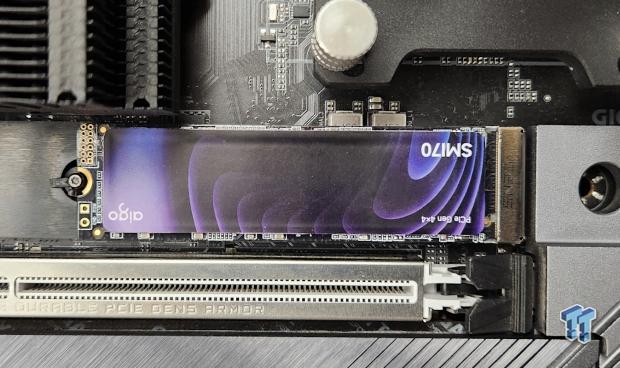
The Bottom Line
Pros
- + Consumer workloads
- + Sequential throughput
- + Single sided
Cons
- - Availability
Should you buy it?
AvoidConsiderShortlistBuyIntroduction & Drive Details
As of late, DRAMless SSDs are all the rage. There are a few factors that play into this DRAMless revolution, with the most important of those being performance rivaling and even exceeding many well-established contemporary enthusiast-level SSDs with twice the number of controller channels and expensive onboard DRAM.
This new generation of superfast DRAMless SSDs is changing the mainstream solid-state storage landscape. Mainstream users can now afford higher capacity without skimping on real-world performance or throughput, which has traditionally been the tradeoff for going DRAMless. Now, even PlayStation M.2 storage slots are being competently filled by high-throughput DRAMless SSDs.
As we like to say, "it's all about the flash" and indeed this is the main factor enabling this new level of throughput being generated by latest and greatest DRAMless speedsters such as Corsair's MP600 Elite and Patriot's VP4300 Lite. Both DRAMless SSDs are arrayed with 2,400 MT speed flash, enabling both to generate up to 7,400 MB/s throughput over the PCIe Gen4 x4 interface with only 4-channels instead of the traditional 8-channels.
To date, we've seen two third-party DRAMless controllers in front of 2,400MT flash delivering this level of throughput, Maxio's MAP6102 and Phison's E27T. Now we've got a third player in Silicon Motion's SM2268XT.
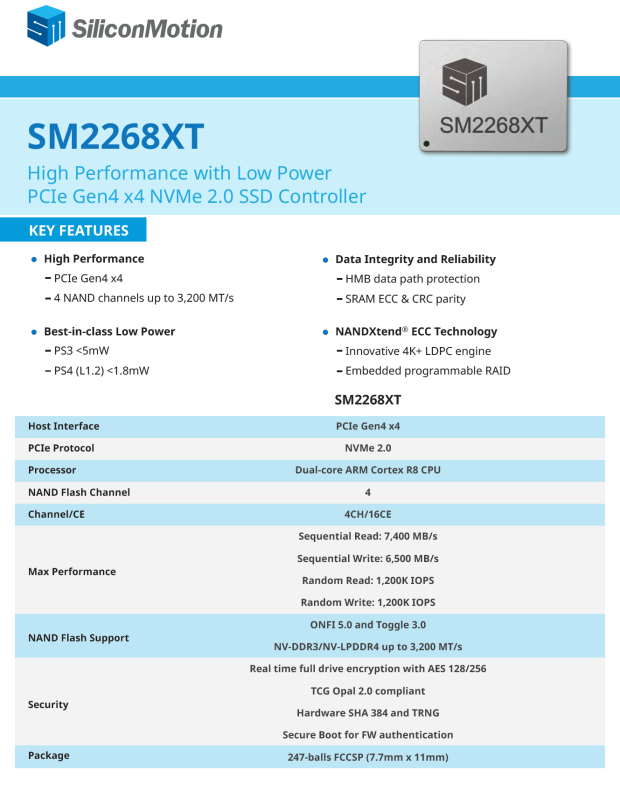
The SM2268XT is another 4-channel DRAMless controller that when set in front of a fast enough flash array can deliver the full throughput available over the PCIe Gen4 x4 interface. This means it is an appropriate choice for not only mainstream PC enthusiasts, but for PS5 storage expansion as well.
That brings us to today's review, the aigo SMI70 2TB. This SSD features SMI's SM2268XT 4-channel DRAMless controller in front of a YMTC 2,400 MT, 232-Layer TLC flash array. To our knowledge, this SSD is targeted at the Asian market and is unavailable outside the Asian market. However, it is certainly a precursor for what we can expect from SM2268XT-controlled SSDs when they become available through Western retail channels.
Okay, now let's get into the review so we can get a feel for what Silicon Motion's SM2268XT controller can do for you.
Drive Details
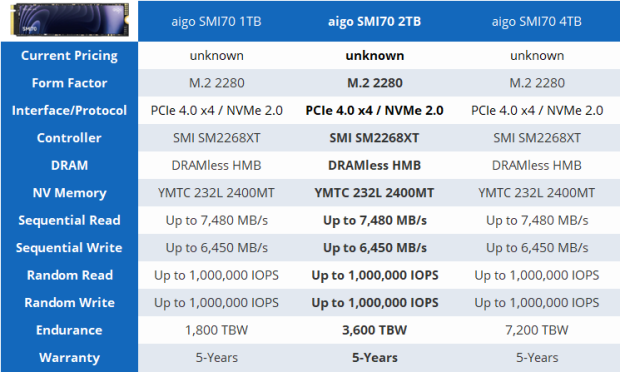
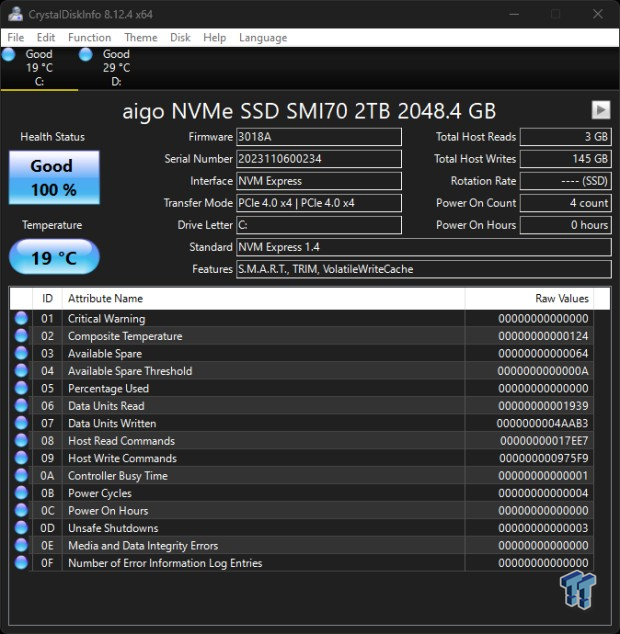
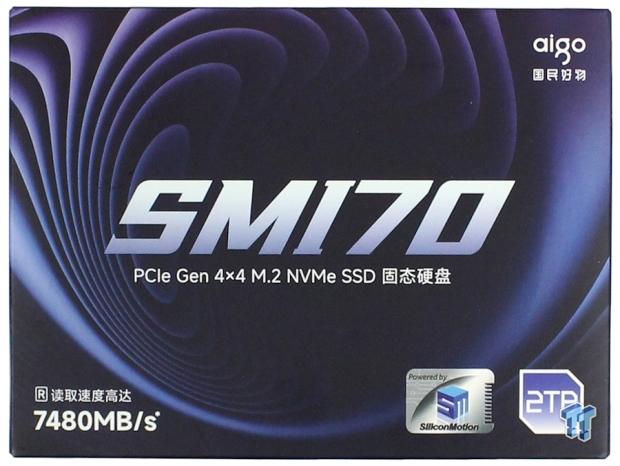
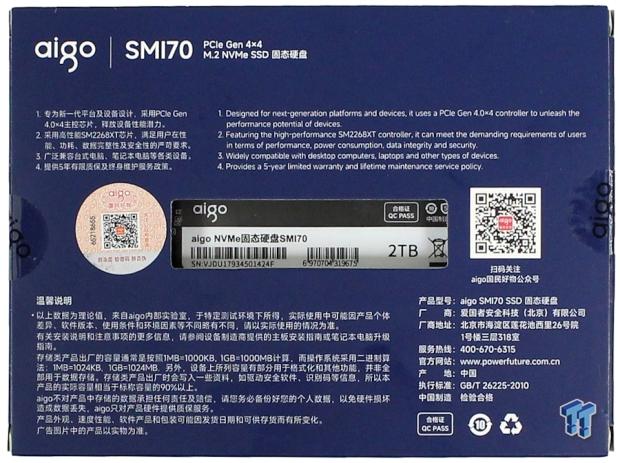


The drive is a preferred single-sided design. We love that because it's easy to cool and can fit in places double-sided SSDs cannot.
Jon's Test System Specifications
Intel Test System
- Motherboard: GIGABYTE AORUS Z790 Xtreme X
- CPU: Intel Core i9-14900K - Buy from Amazon
- Cooler: Alphacool Eissturm Hurricane Copper 45 - Buy from Amazon
- RAM: Patriot Viper Xtreme 5 8000 48GB - Buy from Amazon
- Graphics Card: MSI SUPRIM X RTX 3080 12GB - Buy from Amazon
- Case: PrimoChill's Praxis Wetbench - Buy from Amazon
- Power Supply: be quiet! Dark Power Pro 12 1200W - Buy from Amazon
- OS: Microsoft Windows 11 Pro 64-bit - Buy from Amazon
AMD Test System
- Motherboard: GIGABYTE X670E AORUS Master
- CPU: AMD Ryzen 9 7950X - Buy from Amazon
- Cooler: Alphacool Eissturm Hurricane Copper 45 - Buy from Amazon
- RAM: Sabrent Rocket DDR5 32GB - Buy from Amazon
- Graphics Card: MSI SUPRIM X RTX 3080 12GB - Buy from Amazon
- Case: PrimoChill's Praxis Wetbench - Buy from Amazon
- Power Supply: be quiet! Dark Power Pro 12 1200W - Buy from Amazon
- OS: Microsoft Windows 11 Pro 64-bit - Buy from Amazon
Because we at TweakTown like to be first at everything whenever we can, we will present our storage performance results for the test subject on both 13th Gen Intel and 7000 Series AMD platforms going forward for the foreseeable future. Because Intel still delivers the best real-world storage performance, (Look Here), our running chart will continue to be Intel-based until AMD can deliver better real-world storage performance than its rival.

Solidigm P41 Plus Series 2TB PCIe GEN 4 NVMe 4.0 x4 M.2 2280 3D NAND SSD
Sony PlayStation 5 - M.2 Storage Expansion
PS5 Read Performance
With Sony's wildly popular PlayStation 5 console now enabled for M.2 NVMe SSDs to be used as fast storage expansion, we include results for PS5 compatible SSDs we test as a part of our reviews going forward.
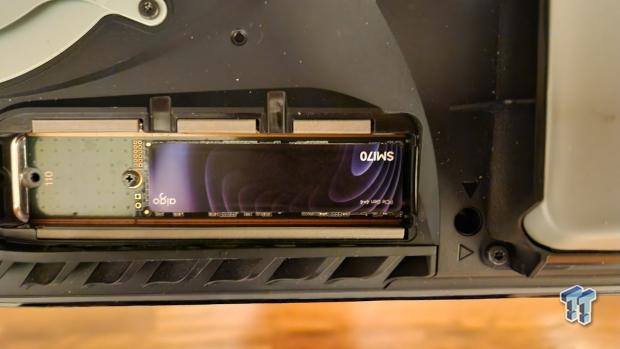
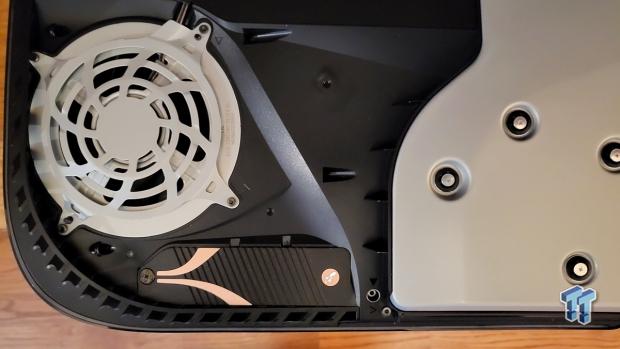
For 5,500 MB/s plus capable SSDs that don't have an adequately sized PS5 compatible heatsink or other SSDs where the heatsink provided doesn't fit right and can be removed, we both use and recommend Sabrent's unparalleled PS5 heatsink available HERE.
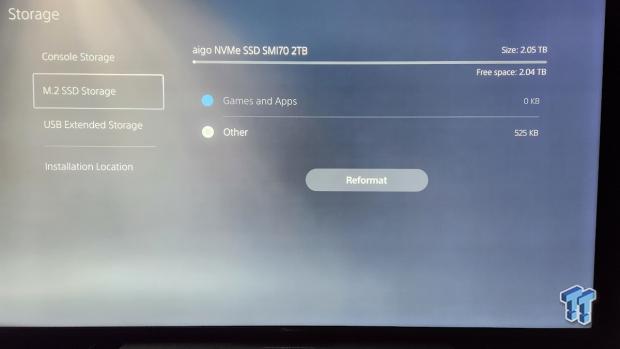
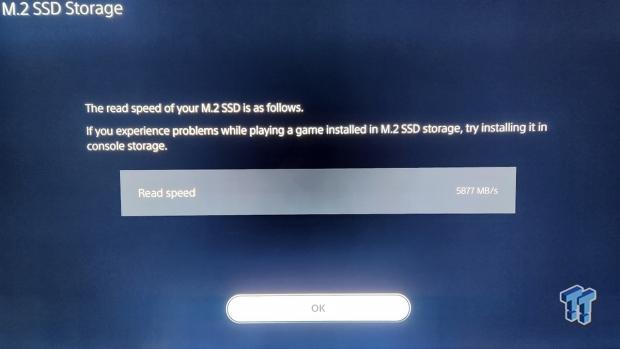
We only chart SSDs that can deliver a minimum of 5,500 MB/s read, which is Sony's original recommendation.
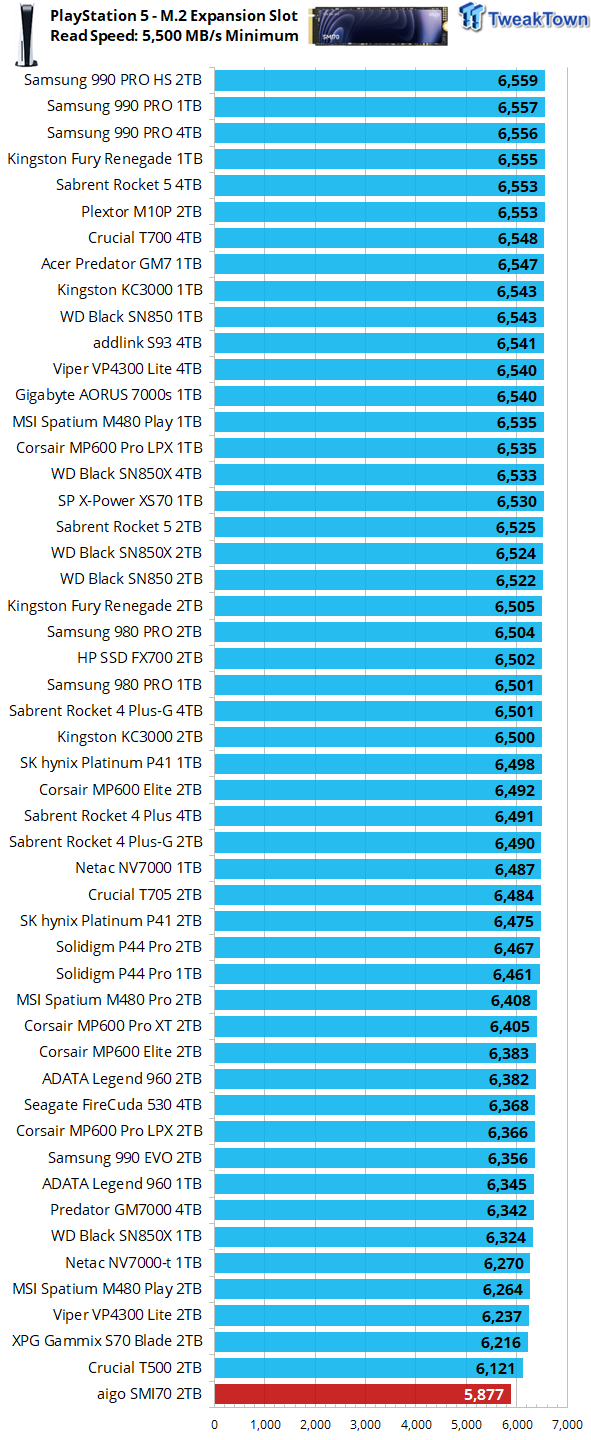
At 5,877 MB/s, the SMI70 2TB makes the cut, although it does land at the bottom of our running chart.
Synthetic Benchmarks: CDM, Anvil, ATTO
CrystalDiskMark
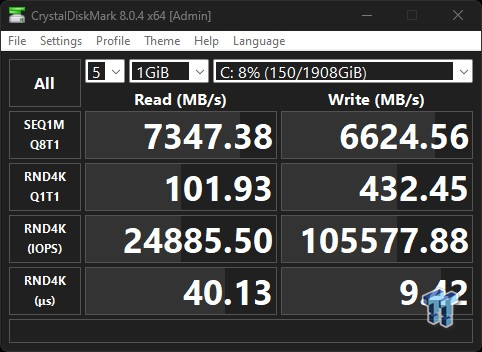
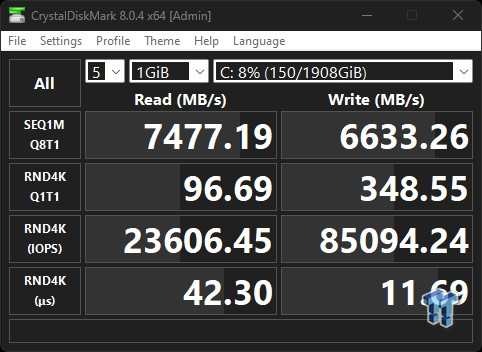
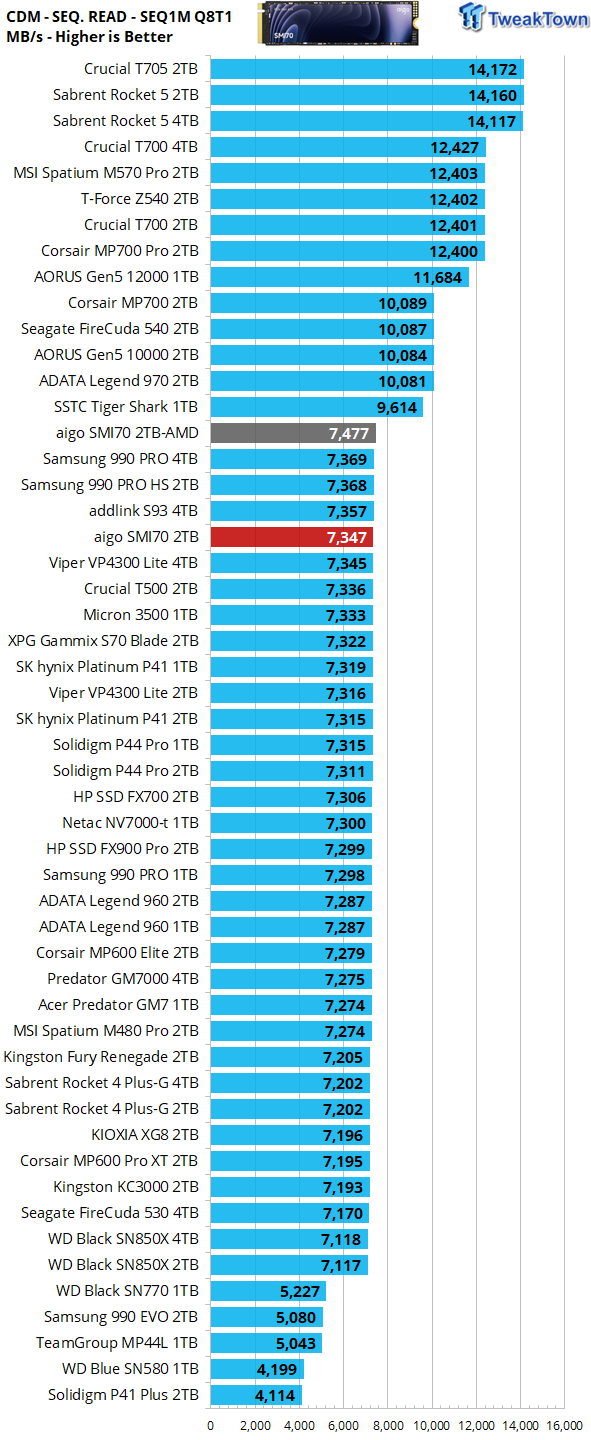
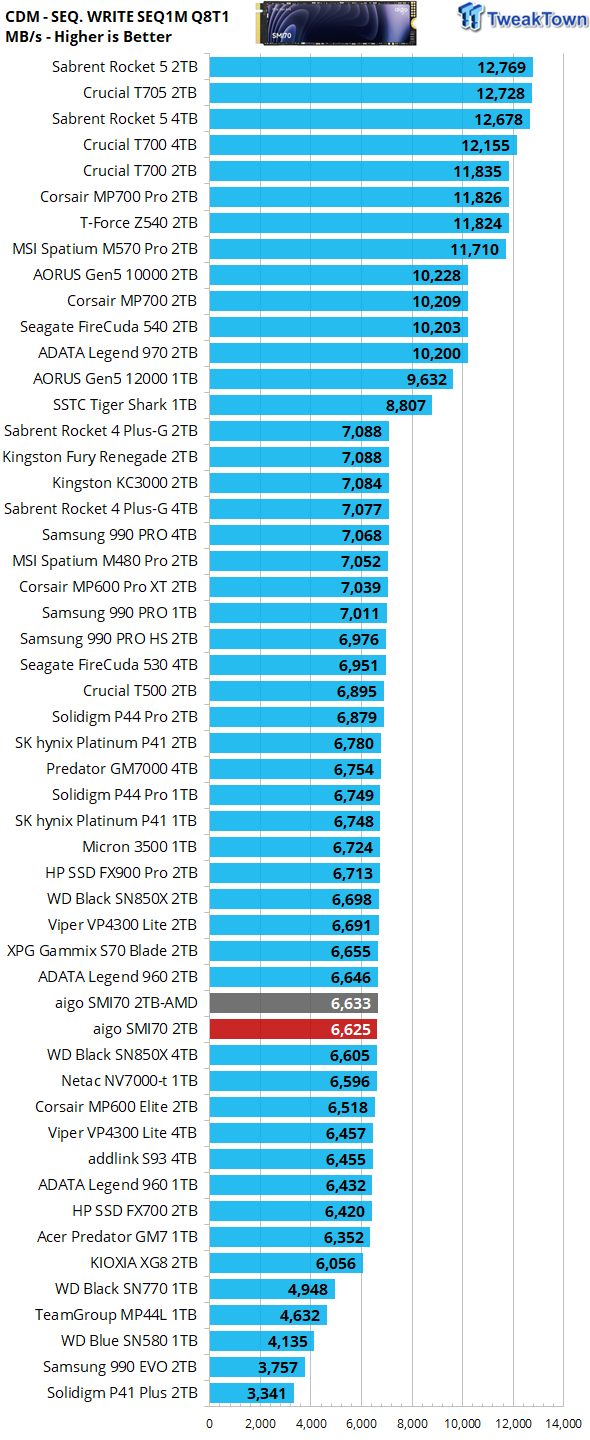
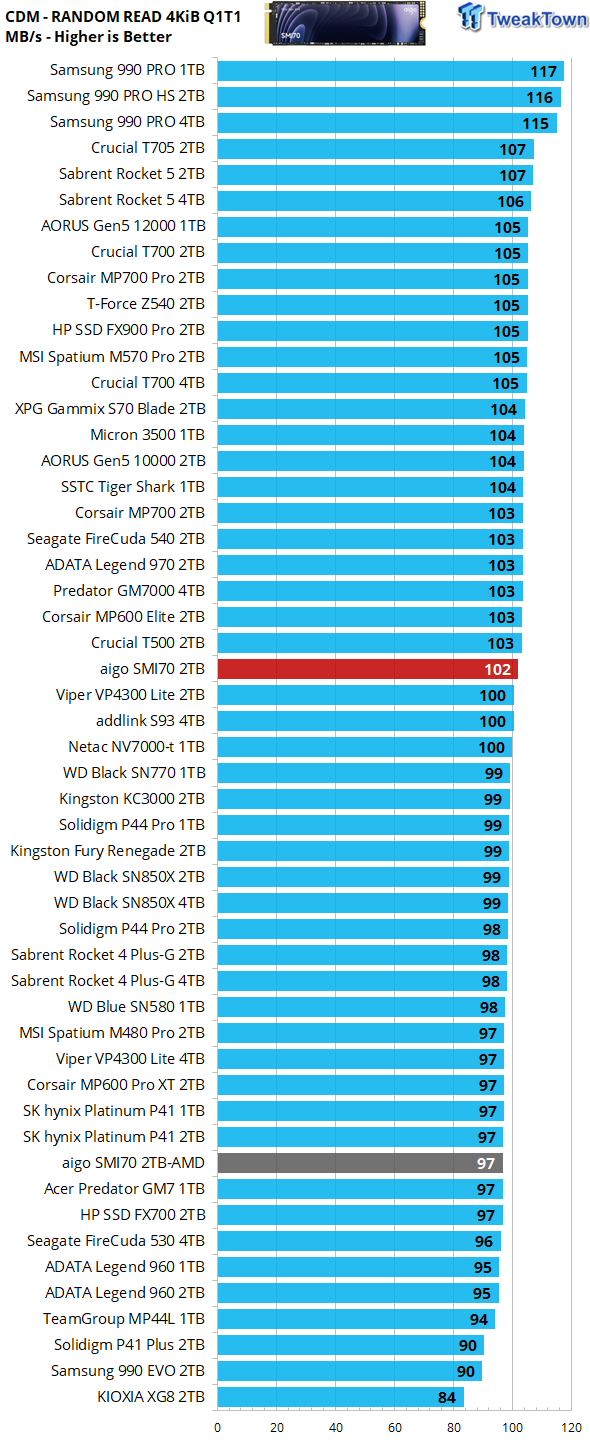
We employ CDM as our standard measurement for both sequential throughput and Q1T1 random read. In terms of sequential throughput, we find our test subject capable of meeting and or exceeding quoted up to specifications (which are given for AMD). Looking at 4K QD1 random read, our test subject is cranking out an attention-grabbing 102 MB/s, which typically signals excellent real-world performance.
Anvil's Storage Utilities
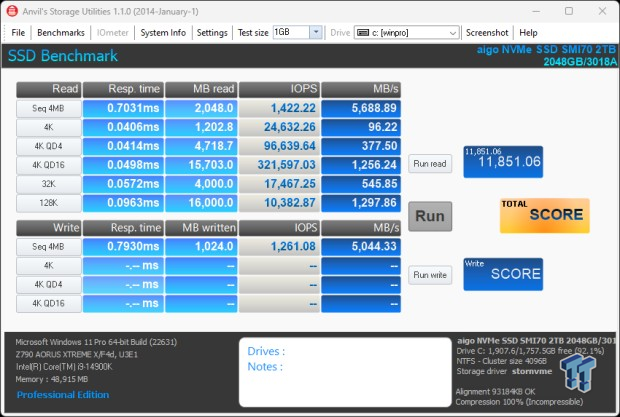
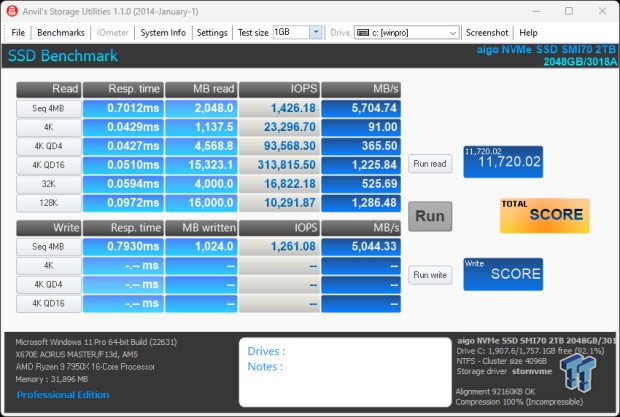
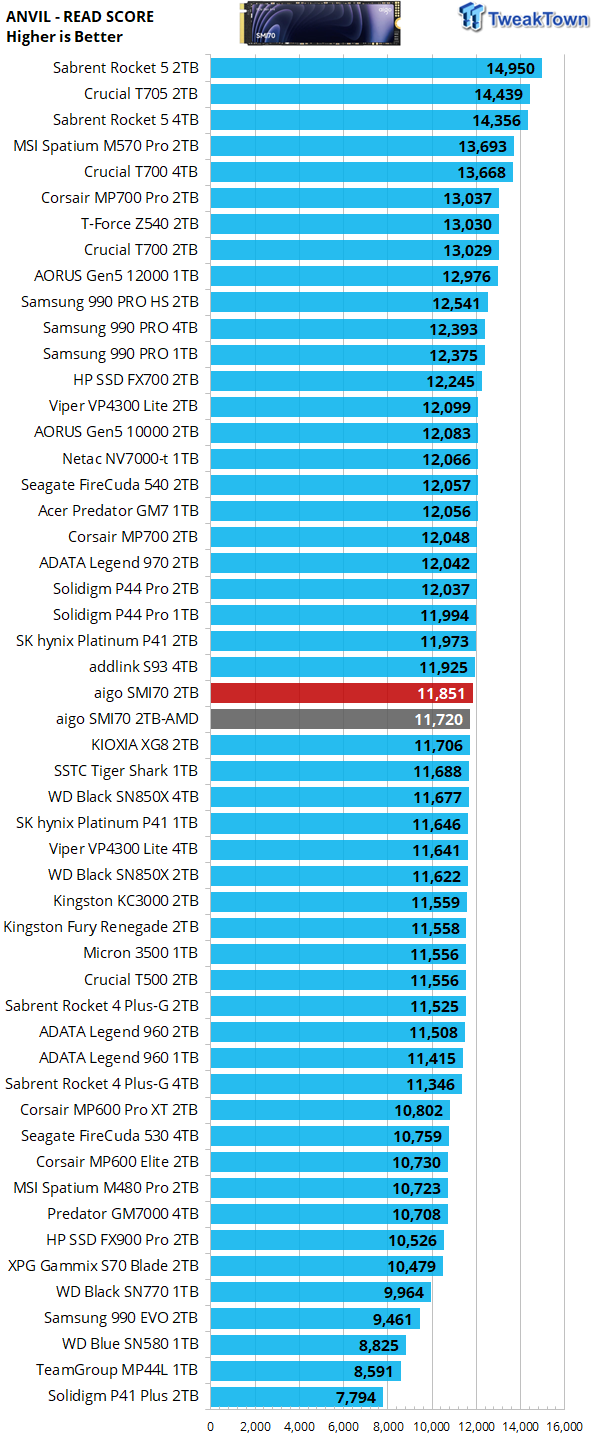
A score of 11,851 here is massively better than what we get from the BiCS 6 arrayed E27T controlled MP600 Elite but lower than that of the YMTC arrayed VP4300 Lite 2TB. Overall, it is an excellent result as it lands right in the middle for all SSDs, including PCIe Gen5.
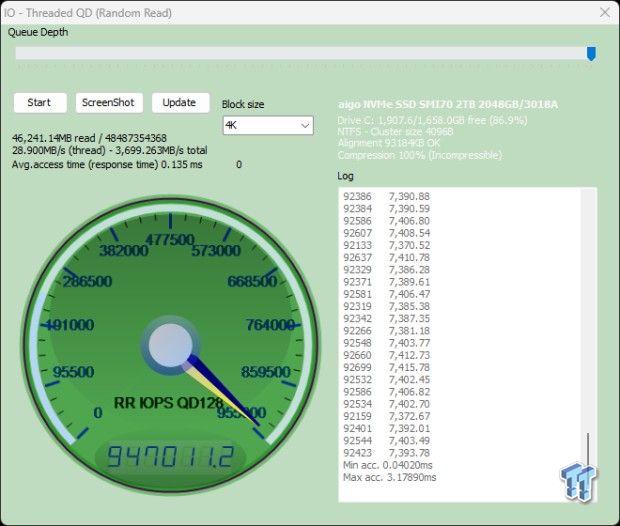
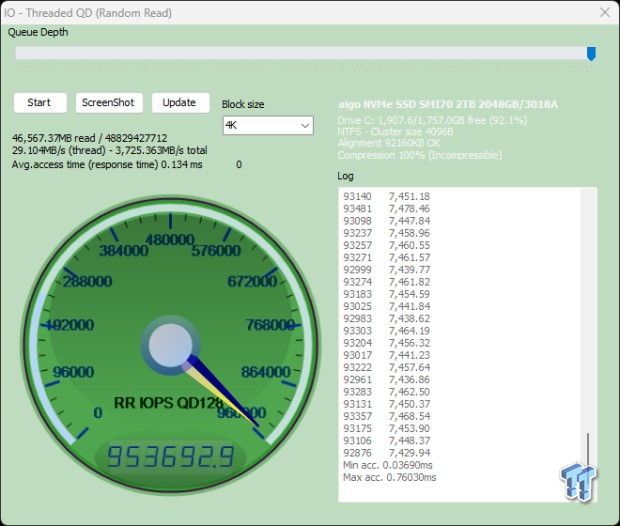
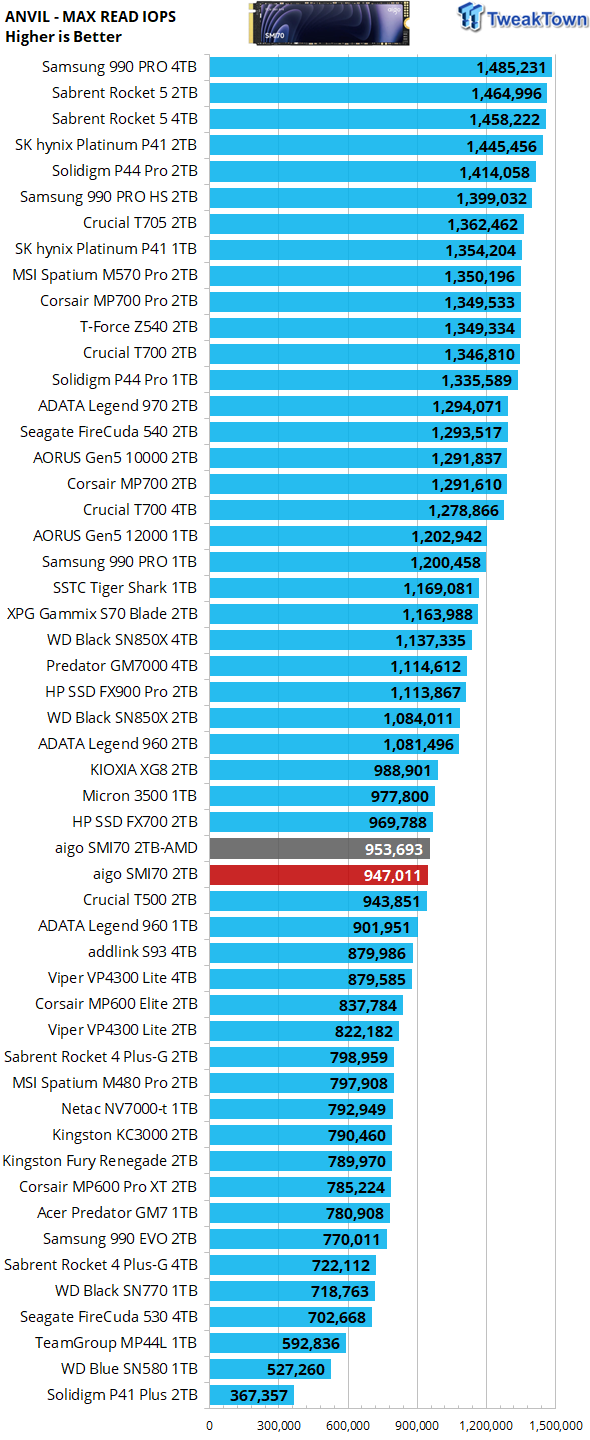
We employ Anvil's random read test as our standard for measuring max random read IOPS. This test is very accurate as it at its core is Iometer skinned over. We test at QD128. Our newly minted DRAMless contender cranks out an impressive 953K random read IOPS on our AMD system, ranking it second best for a flash-based DRAMless SSD.
ATTO
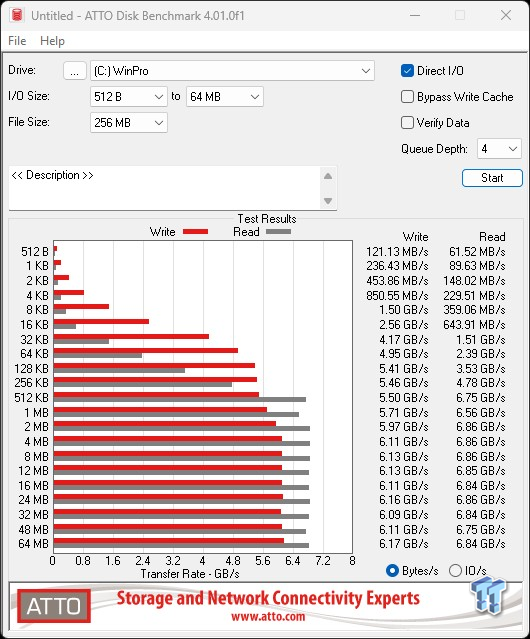
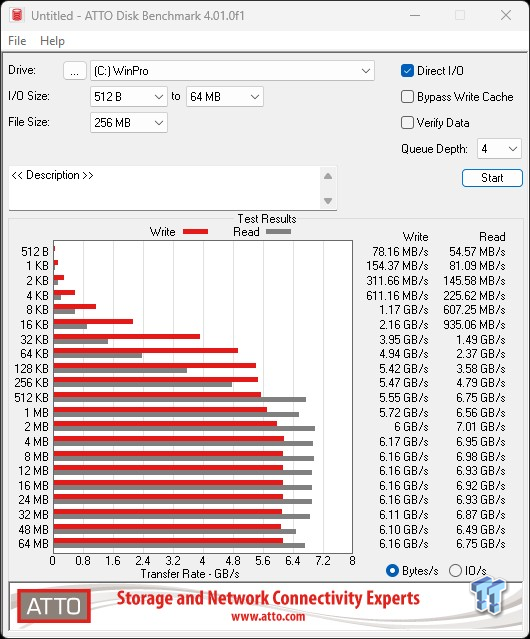
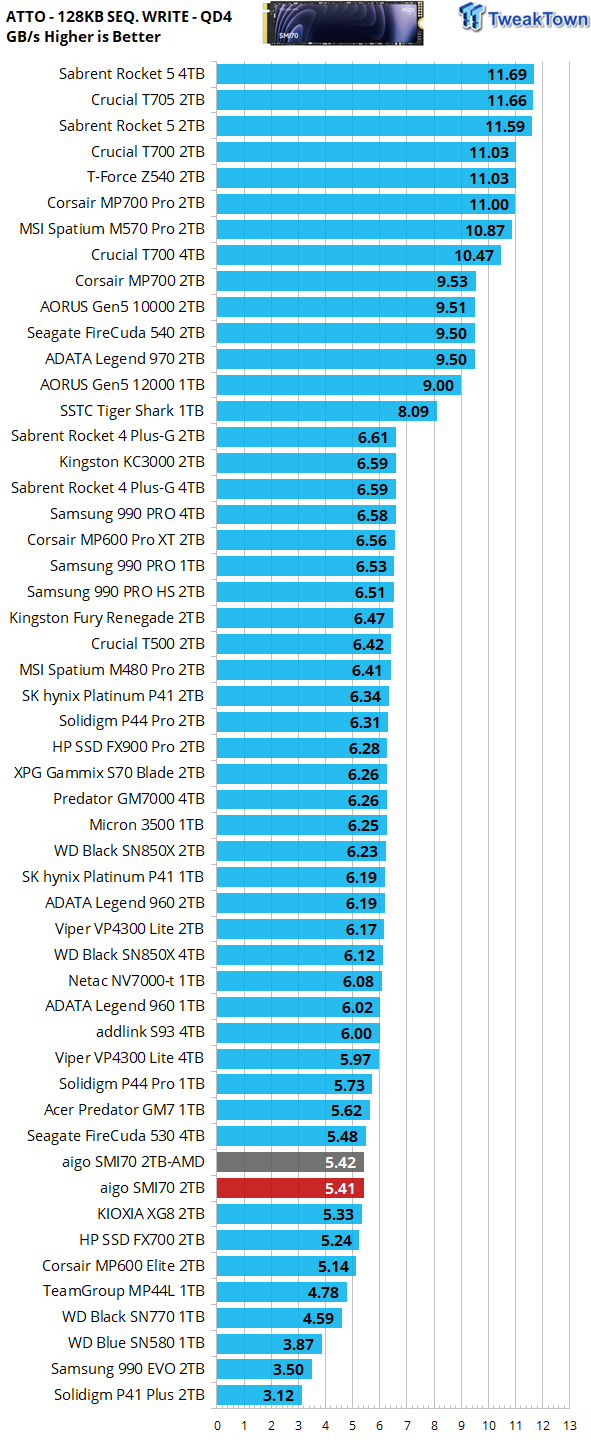
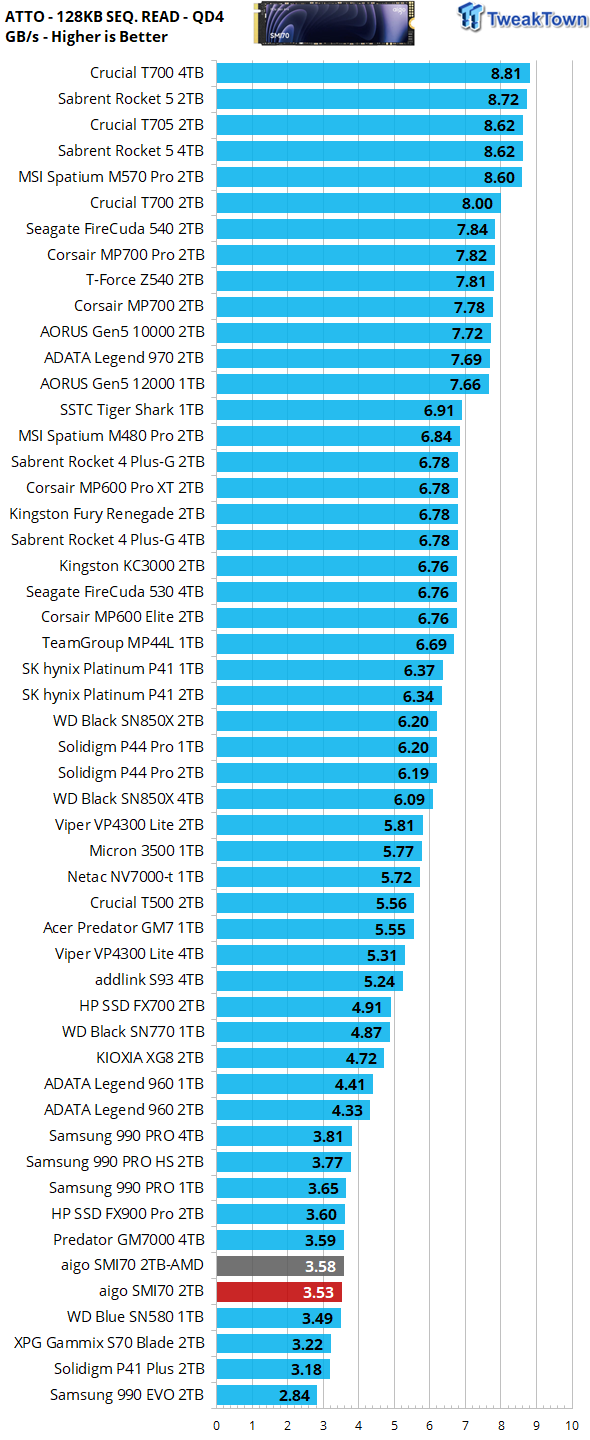
ATTO gives us a clear picture of what transfer sizes a particular SSD favors in terms of sequential throughput at QD4. We chart 128K transfers. Our test subject favors sequential transfers of 512K or larger when serving data to the host (reading) and 128K or larger when programming (writing) data.
Real-World Testing: Transfers, 3DMark SSD Gaming Test, PCM10 Storage
Transfer Rates
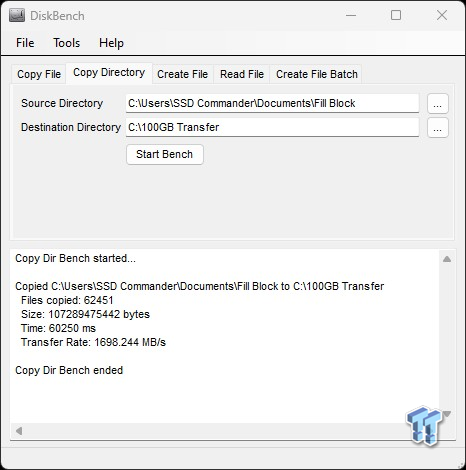
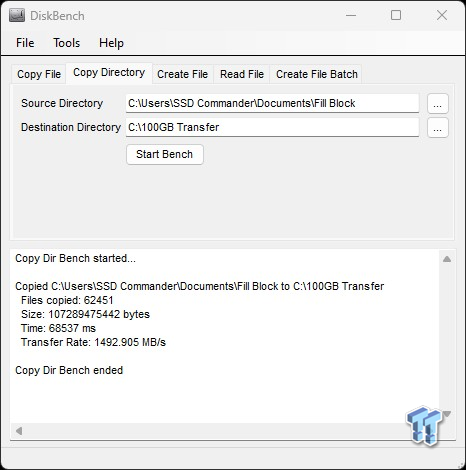
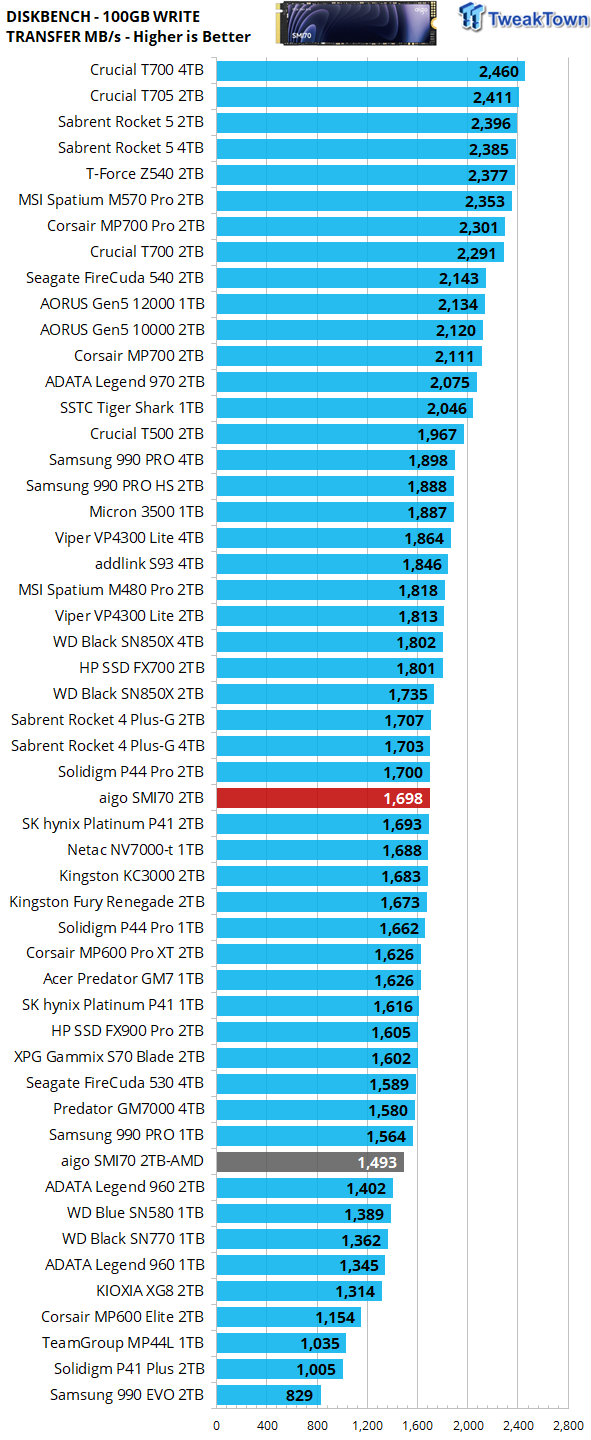
Our 100GB data transfer test is not your ordinary 100GB of data. Ours is a crushing mix composed of more than 62K files. Write performance, random or sequential, is an infrequent operation, and as such, we do not consider it to be an important performance metric in the consumer space. An example being how many times is a game installed vs. how many times it's played. Better than the E27T and not quite as good as the MAP1602-controlled SSDs. Overall impressive.
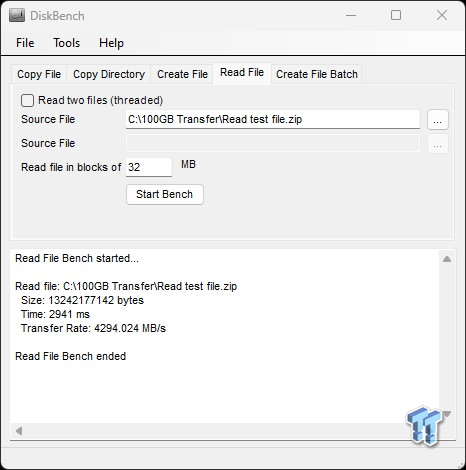
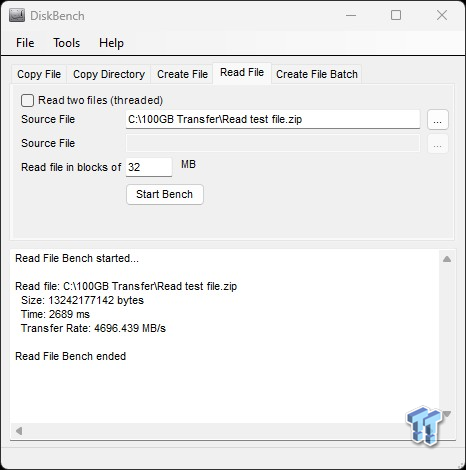
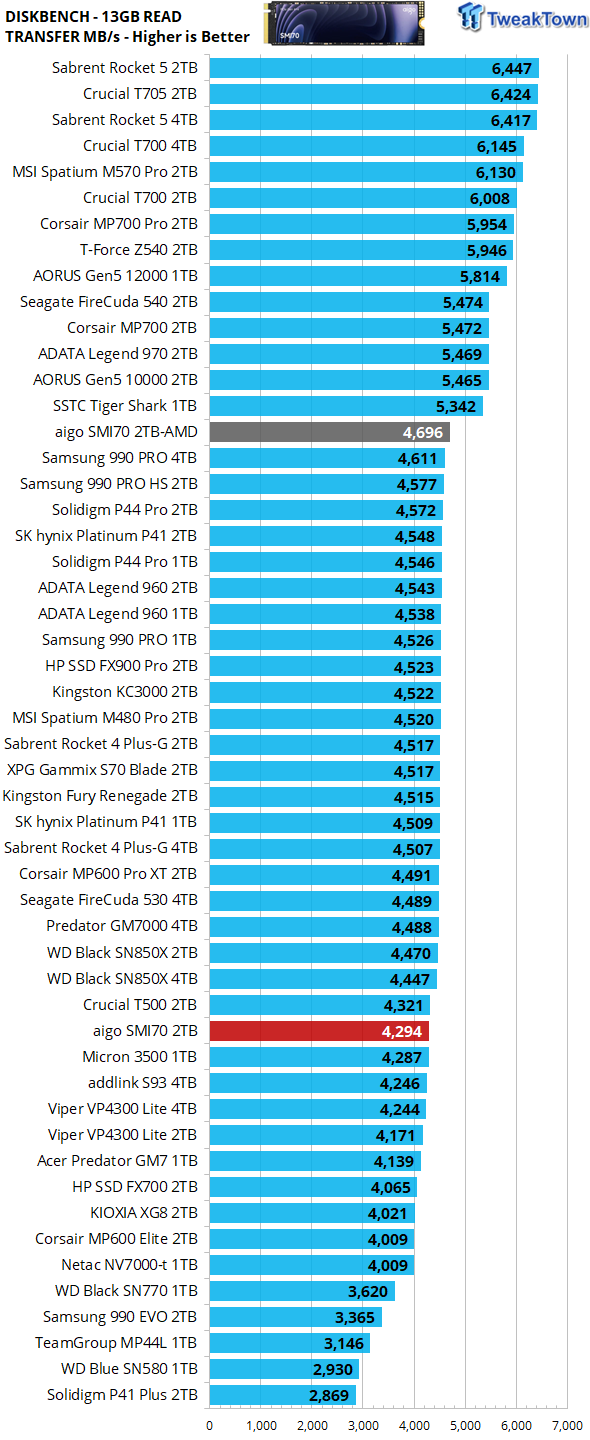
Unlike programming (writing) data, serving data to the host (reading) data is always an important performance metric as it relates to the consumer space. 4,294MB/s is a new lab record for a flash-based DRAMless SSD. Outstanding.
3DMark SSD Gaming Test
UL's newest 3DMark SSD Gaming Test is the most comprehensive SSD gaming test ever devised. We consider it superior to testing against games themselves because, as a trace, it is much more consistent than variations that will occur between runs on the actual game itself. This test is the same as running the actual game, just without the inconsistencies inherent to application testing. In short, we believe that this is the world's best way to test an SSD's gaming prowess and accurately compare it against competing SSDs. The 3DMark SSD Gaming Test measures and scores the following:
- Loading Battlefield V from launch to the main menu.
- Loading Call of Duty Black Ops 4 from launch to the main menu.
- Loading Overwatch from launch to the main menu.
- Recording a 1080p gameplay video at 60 FPS with OBS (Open Broadcaster Software) while playing Overwatch.
- Installing The Outer Worlds from the Epic Games Launcher.
- Saving game progress in The Outer Worlds.
- Copying the Steam folder for Counter-Strike Global Offensive from an external SSD to the system drive.
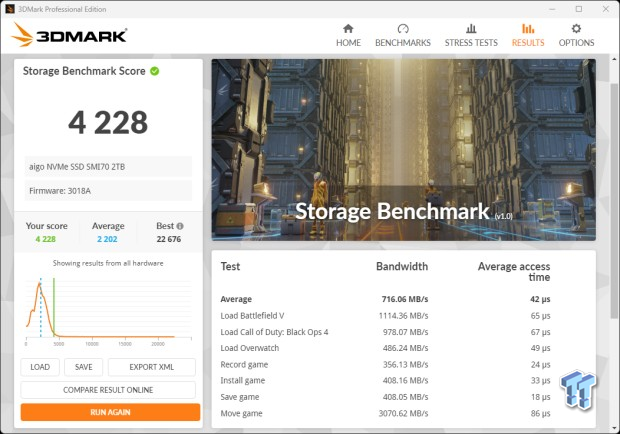
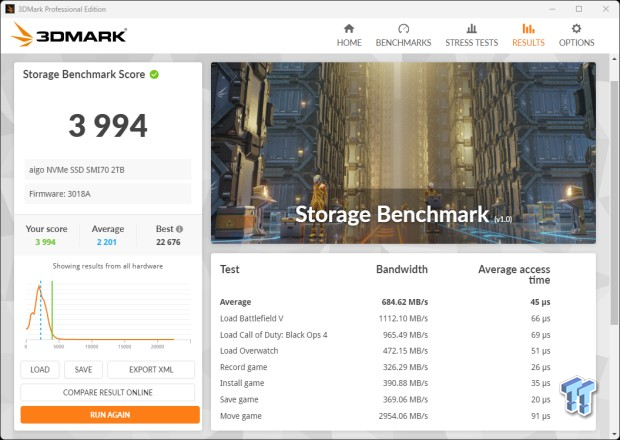
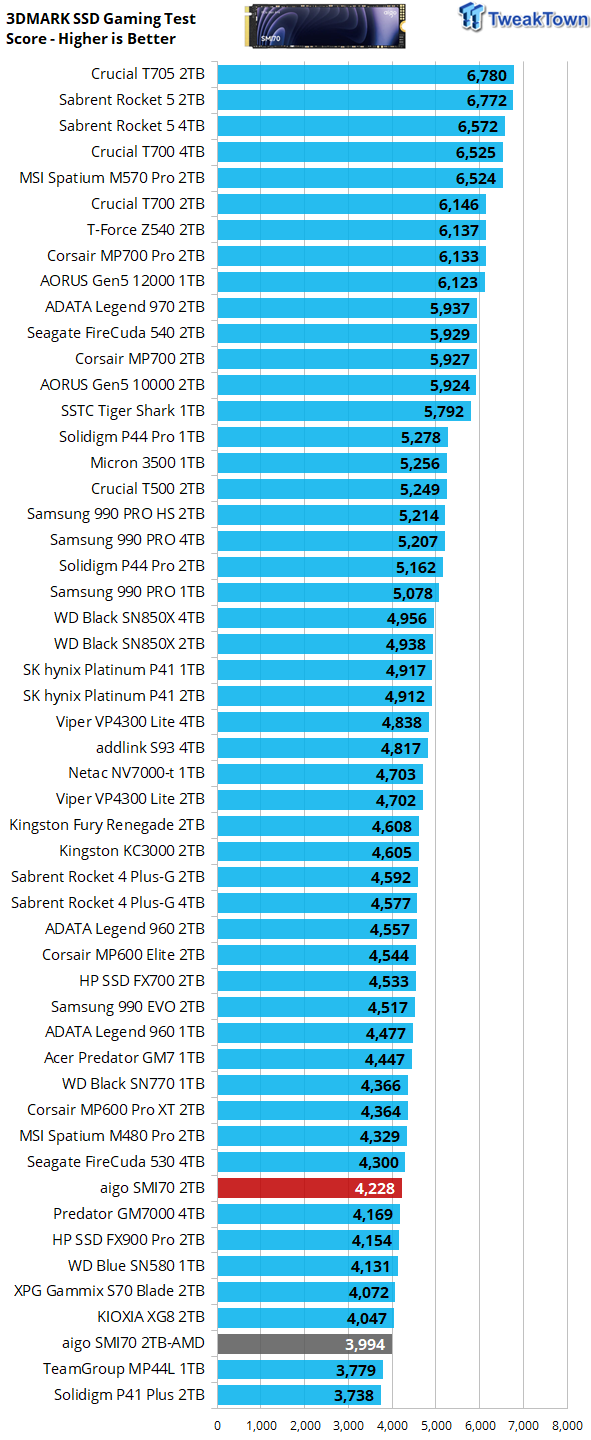
Gaming is a performance metric that matters to most DIY consumers, especially to the enthusiast crowd that TweakTown caters to. Now we've reached the point where results start to matter as they are a direct reflection of user experience. A score of 4,200 here is respectable for a DRAMless SSD, but the lowest of our top three DRAMless controllers.
PCM10 Storage Tests
PCMark 10 Storage Test is the most advanced and most accurate real-world consumer storage test ever made. There are four different tests you can choose from; we run two of them. The Full System Drive Benchmark and the Quick System Drive Benchmark. The Full System Drive Benchmark writes 204 GB of data over the duration of the test. These tests directly correlate with mainstream user experience.
PCMark 10 Full System Drive Benchmark
This test writes 204GB data and covers a broad range of common consumer tasks, including booting Windows 10, file transfers, Adobe and Office applications, and startup times for games including Battlefield V, COD Black Ops 4, and Overwatch. Unlike synthetic numbers, this is comprehensive real-world data which is why we use it to rank SSDs in terms of user experience.
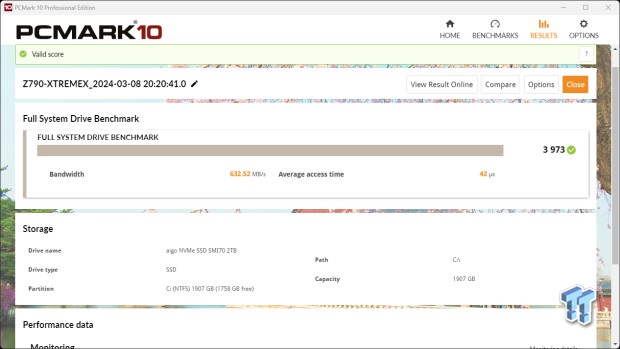
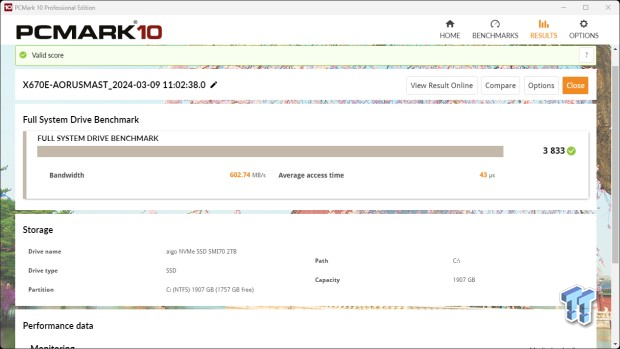
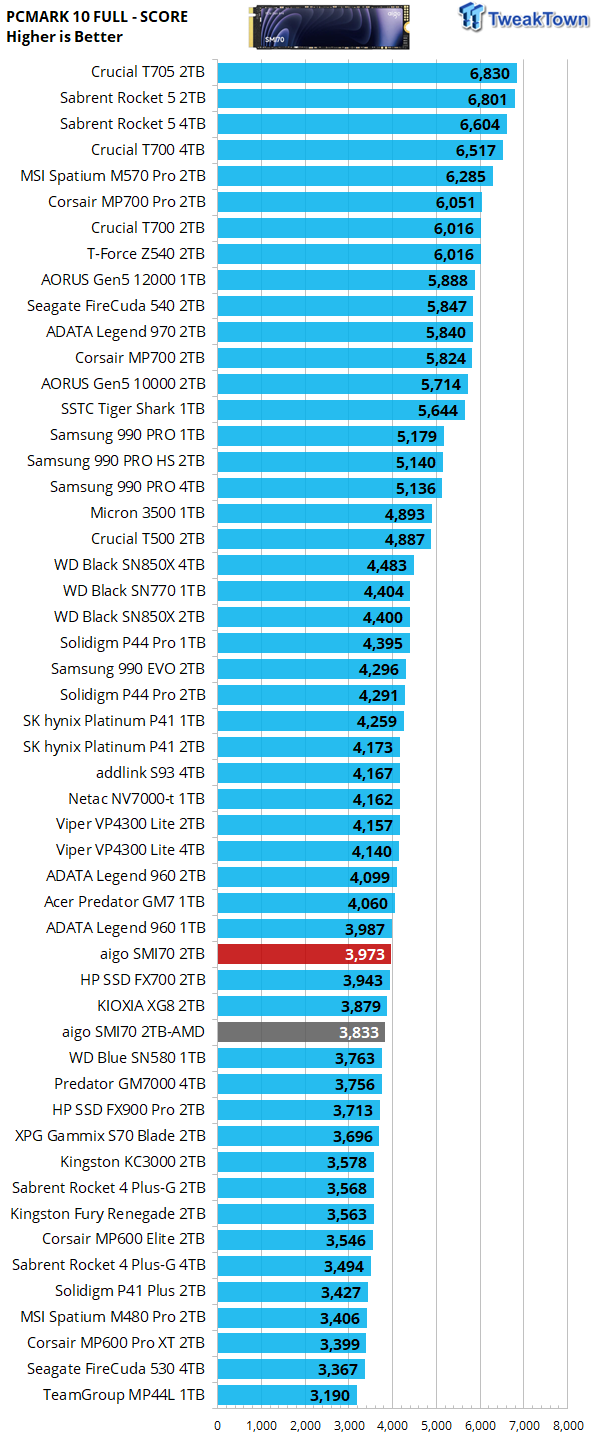
Our test subject again performs slightly lower than the MAP1602 drives but significantly better than its E27T controlled competition when dealing with heavy consumer workloads.
PCMark 10 Quick System Drive Benchmark
The Quick System Drive Benchmark writes 23 GB of data over the duration of the test.
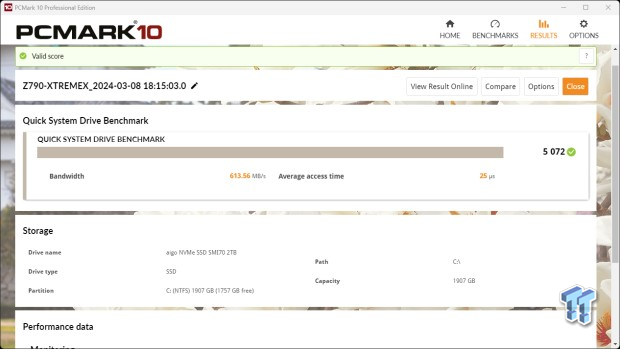
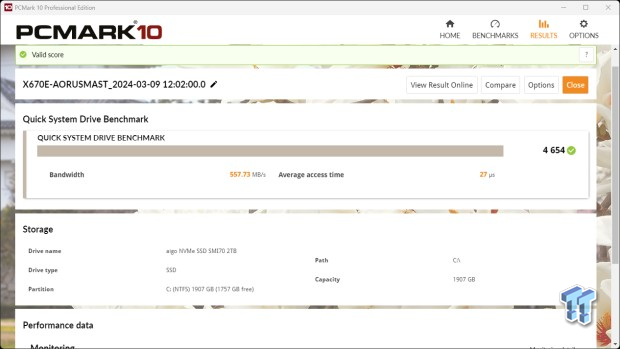
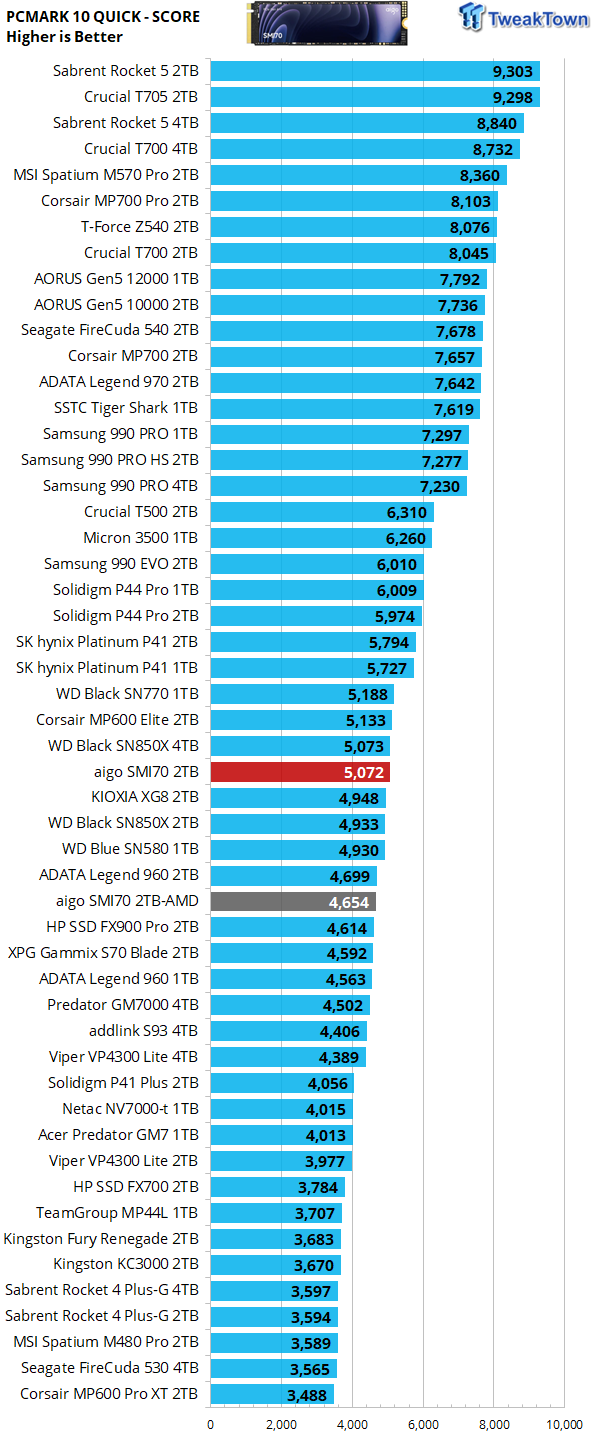
This time we find our contender delivering roughly equal to the E27T controlled MP600 Elite and significantly better than the MAP1602 controlled drives.
Final Thoughts
As we see it, aigo's SMI70 2TB is a winner based on performance alone. Pricing and availability are the wildcard here, as we don't know much about either of those criteria and therefore cannot factor those into our recommendation. However, we can determine without question that Silicon Motion's SM2268XT controller is among the best of its kind currently in circulation, so in that respect the drive gives us some valuable information about what is coming down the pike.
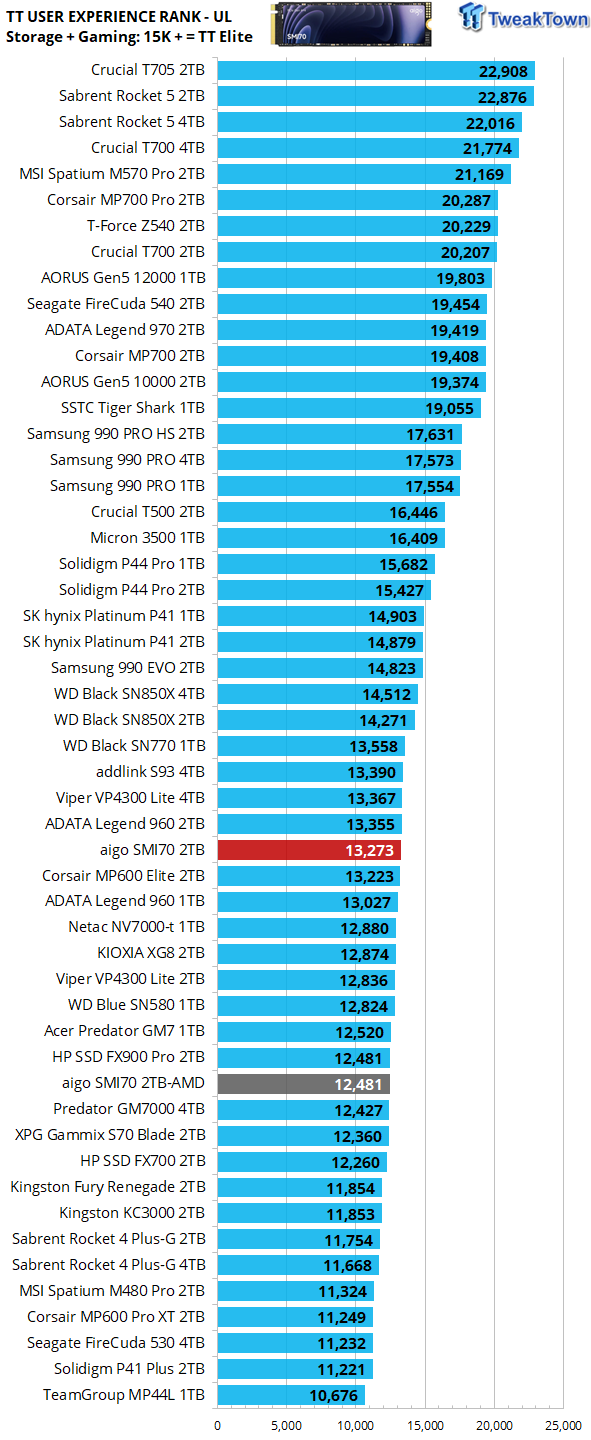
We rank SSDs in terms of overall user experience (performance where it matters most) as expressed by PCMark 10 storage and 3DMark gaming storage tests. We consider a user experience score of 15K or more to verify an SSD as a TweakTown Elite performer. The aigo SMI70 2TB is overall the second highest performing 2TB DRAMless SSD we've tested to date - it's especially impressive, considering it is the first SM2268XT-controlled SSD we've encountered.
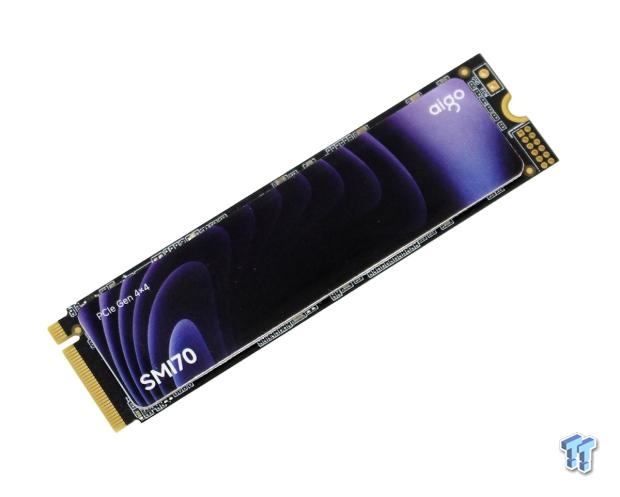
It's ultra power efficient, cool running, PS5 competent, and capable of saturating the PCIe Gen4 x4 interface, making it worthy of a coveted TweakTown Must Have Award.

